D&D Tortle Guide | Is The Tortle Race Good?

What some tortles might deem as a simple life, others might find it to be an adventurous one. Born near sandy coastlines, tortles become nomad survivalists as soon as they can walk on two legs. Forever eager to explore the vivid wilderness and its wonders, they do not shy away from putting their skills to the test and making new acquaintances along the way. Torles spend their lives welcoming the glory of the world, hopping from one place to the other in the spirit of adventure.
Naturally, tortles do not put much thought into searching for meaning, instead erring towards finding joy in the present and making the most of what the world offers. From a tender age, tortles fend for themselves and find solace in the beauty during their travels. They do not procreate until much later, at around 50 years old, when they seek out a mate and patiently wait for their eggs to hatch.
And in their final moments in life, they share their life’s knowledge and Wisdom with their newborn children, thereby kickstarting the cycle of life again.
Tortle Overview
Being reptilian-looking humanoids, tortles have large shells on their backs that contain their entire body. They have leather-like skin that varies between blue-green and olive-green hues. The dorsal part of their shells is typically darker than their skins, while the ventral portions maintain a light yellowish tinge.
Tortles rarely wear clothes, using belts and harnesses to carry their belongings instead. With little tolerance for cold, they usually migrate away from temperate zones once winter approaches. Although naturally poor swimmers, they can float on water and hold their breath for more than an hour. Their high buoyancy offered them the ability to cross mud, swamps, and quicksand with almost no difficulty.
Tortles often fantasize about having their houses on their backs which means they rarely feel homesick or find a need to lay roots in a single place. Always eager to learn new customs, tortles find beauty in the most ordinary things. They like to form strong bonds even though they spend much of their lives isolated.
Tortles can wield shields and weapons, and their claws and beaks serve as effective natural weapons. Their ability to retreat into their shells offer additional protection whenever necessary, though when in this situation, they will not be able to move or see. They can still smell and hear the outside world. Their body shape makes it impossible for tortles to put on armor.
Tortles like to reproduce towards the end of their natural lifespan. Once the young ones hatch from the eggs, they spend the rest of their lives sharing their life experiences and imparting survival lessons. Within a year, the tender tortles become orphans, by which time they tend to start fending for themselves. They usually keep to themselves and live alone, though they keep close contact with their tortle community.
Halflings, humans, and elves are usually welcome in tortle villages. They are common in southern Chult, nearing a peninsula that borders Samarach. An incident brought by the Spellplague pushed the peninsula and the continent apart, dividing it by a narrow strait. The island thus formed was named Snout of Omgar, and it provided natural defense from predators on the mainland.
The tortles claimed the island as their domain, and the fort of Ahoyhoy was built on the northwestern tip of the island. In the late 1480s DR, some tortles offered their services as distinguished jungle guides at different locations within Chult.
Tortle 5e Traits & Abilities
Here are the tortle 5e traits and abilities:
| Parameter | Increment/Decrement |
| Ability Score Increase | Strength: +2 and Wisdom: +1 |
| Age | Newborns crawl for some weeks before learning to walk on two legs. They attain adulthood by 15 and live for an average span of 50 years. |
| Alignment | They lead orderly and ritualistic lives where they develop routines and customs, becoming more set in their ways with age. Most are lawfully good though some can be greedy and selfish, erring towards evil, In the end, it is not normal for tortles to overlook order for chaos. |
| Size | 5 to 6 feet tall and 450 pounds on average. Their shells make up 1/3rd of their weight, and their size is medium. |
| Speed | 30 feet base walking speed |
| Claws | Their claws are natural weapons that can be used to make unarmed strikes. They deal slashing damage of 1d4+ their Strength modifier. |
| Hold Breath | Tortles can hold their breath for about an hour. They are not natural swimmers, but they can stay underwater for a while before having to come up for air. |
| Natural Armor | The shell and shape of tortles make them unsuitable for armor, but their shells offer ample protection. You can expect a base AC of 17, and note that your Dexterity modifier does not impact this number. There is no benefit to wearing armor, but if there is a shield in use, the shield’s bonus can be applied as normal. |
| Shell Defense | Tortles can withdraw into their shell as an action, and until they emerge, they get a +4 to AC, and they have an advantage on Constitution and Strength saving throws. While in their shell, they are prone, their speed is zero, and it cannot go up, they have disadvantages on Dexterity saving throws, they cannot take reactions, and the only action they can take is a bonus action while emerging from the shell. |
| Survival Instinct | They get proficiency in survival skills as they finally hone their survival instincts. |
| Languages | They can speak, read, and write Common and Aquan. |
D&D 5e Tortle Classes
A tortle’s skill bonuses +2 in Strength and +1 in Wisdom, making it an excellent choice for classes emphasizing Strength or a wisdom-based class looking for improved armor. We recommend the following classes:
Best Class for Tortles
1. Barbarian

To get an AC of 17 with unarmored defense, you will need at least 18 (+4) Strength and 16 (+3) Dexterity. This feature will let you disregard Dexterity as a worthy barbarian skill and put all your focus on Constitution and Strength. The +1 Wisdom will be wasted on nearly every build for this class.
Still, you can use the origin customizations from Tasha’s Cauldron of Everything to include the +1 to Constitution and craft the perfect barbarian.
2. Paladin
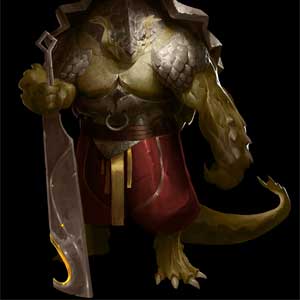
Paladins will benefit from not fretting over Dexterity just as well, and this will let you focus on Charisma and Strength while still having a decent AC. Tortles are well known for adopting the gods of those they come across in their travels, so being convinced to join a fight in service to God would make perfect thematic sense for this class.
3. Druid
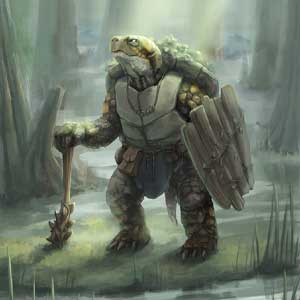
Druids usually need real help in the AC aspect, and what better way to do this than with a racial feat? Druids usually use a shillelagh or a wild shape for dealing combat damage, but the strength bonus will not be enough to push you away from this class.
Moreover, you can always make use of TCoE to switch if you want. This race is great and an easy way to have extra AC if you are struggling to justify allotting such a hefty number to Dexterity. The other features of this class are not going to rely on your class for their effectiveness, and vice versa.
Tortle Classes You Should Avoid
Here are a few tortle classes that are best avoided:
1. Rogue
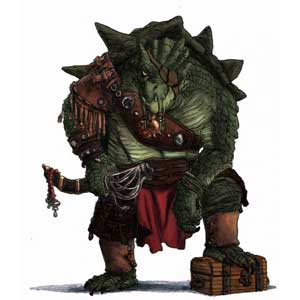
You will have no Dexterity increase, and even, generally speaking, nothing else about the good ol’ tortle appeals to the Rogue.
2. Sorcerer
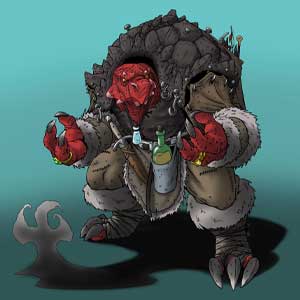
You get zero Charisma increase, and though the tortle’s high base AC is a nice novelty, that’s not enough. Want a tortle spellcaster? Wisdom-based all the way!
3. Warlock
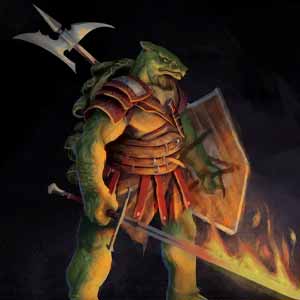
Here you get no Charisma increase, and once again, though the tortle’s high base AC is a great novelty, that will not be enough. For tortle spellcasters, go for Wisdom-based.
4. Wizard
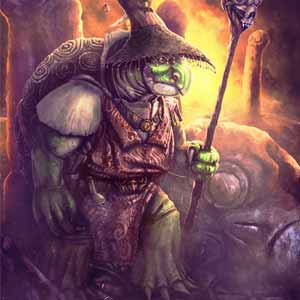
You get no Intelligence increase, and much like the other two, the tortle’s high base AC is a good novelty, but not nearly enough. If you are aiming for a tortle spellcaster, aim for Wisdom-based.
Conclusion
That’s all about the tortle 5e guide! They are a great race with some of the best defense features you can gain as racial bonuses. Think you are turtley enough? Use this character in your next campaign and see for yourself. Happy questing! If you wish to explore more characters like tortle in D&D 5e, we have few characters guides like samurai fighter, tabaxi rogue, tiefling warlock, aasimar sorcerer and many more for you at our disposal.






